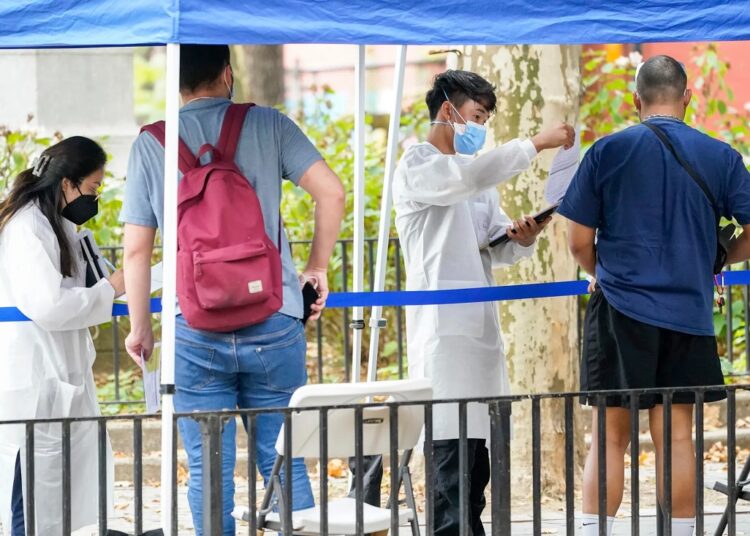WASHINGTON – After weeks of delays, nearly 800,000 doses of the monkeypox vaccine will soon be available for distribution, US health regulators said.
The announcement comes amid growing criticism that authorities have been too slow in deploying the vaccine, potentially missing the window to contain what could soon become an entrenched infectious disease.
Nearly two weeks ago, the Food and Drug Administration said it had finished the necessary inspections at Bavarian Nordic’s facility in Denmark, where the company fills vials of the vaccine.
The FDA said via Twitter that the certification had been finalized. The doses are already in the US “so that they would be ready to be distributed once the manufacturing changes were approved,” the agency said.
The US already has sent more than 310,000 doses of the two-shot Jynneos vaccine to state and local health departments. But clinics in San Francisco, New York and other major cities say they still don´t have enough shots to meet demand.
There were more than 4,600 reported monkeypox cases in the US as of late Wednesday, according to the Centers for Disease Control and Prevention.
Officials at the San Francisco Department of Health welcomed the news, saying they need many thousands more vaccine doses than the 7,800 they have received to date. “Without enough vaccine supply, we would have trouble fulfilling our basic duty of keeping our communities safe,” the agency said in a statement according to AP.
The monkeypox virus mainly spreads through skin-on-skin contact, but it can also transmit through touching linens used by someone with the infection.
People with monkeypox may experience fever, body aches, chills and fatigue. Many in the outbreak have developed zit-like bumps on many parts of the body.
The sluggish federal response has drawn comparisons to the initial days of the COVID-19 outbreak, but experts have pointed out that the US had one huge advantage: more than 1 million doses of vaccine in the strategic national stockpile.
But it turned out US officials had only about 2,000 doses on hand when the outbreak was first identified in May. Shipping and regulatory delays have meant only a portion of the rest were deployed.
“There’s not enough doses,” said Dr. Perry Halkitis, a public health specialist at Rutgers University. “I think with some quicker action on the part of federal government we might not be in the situation we are now.”






Discussion about this post